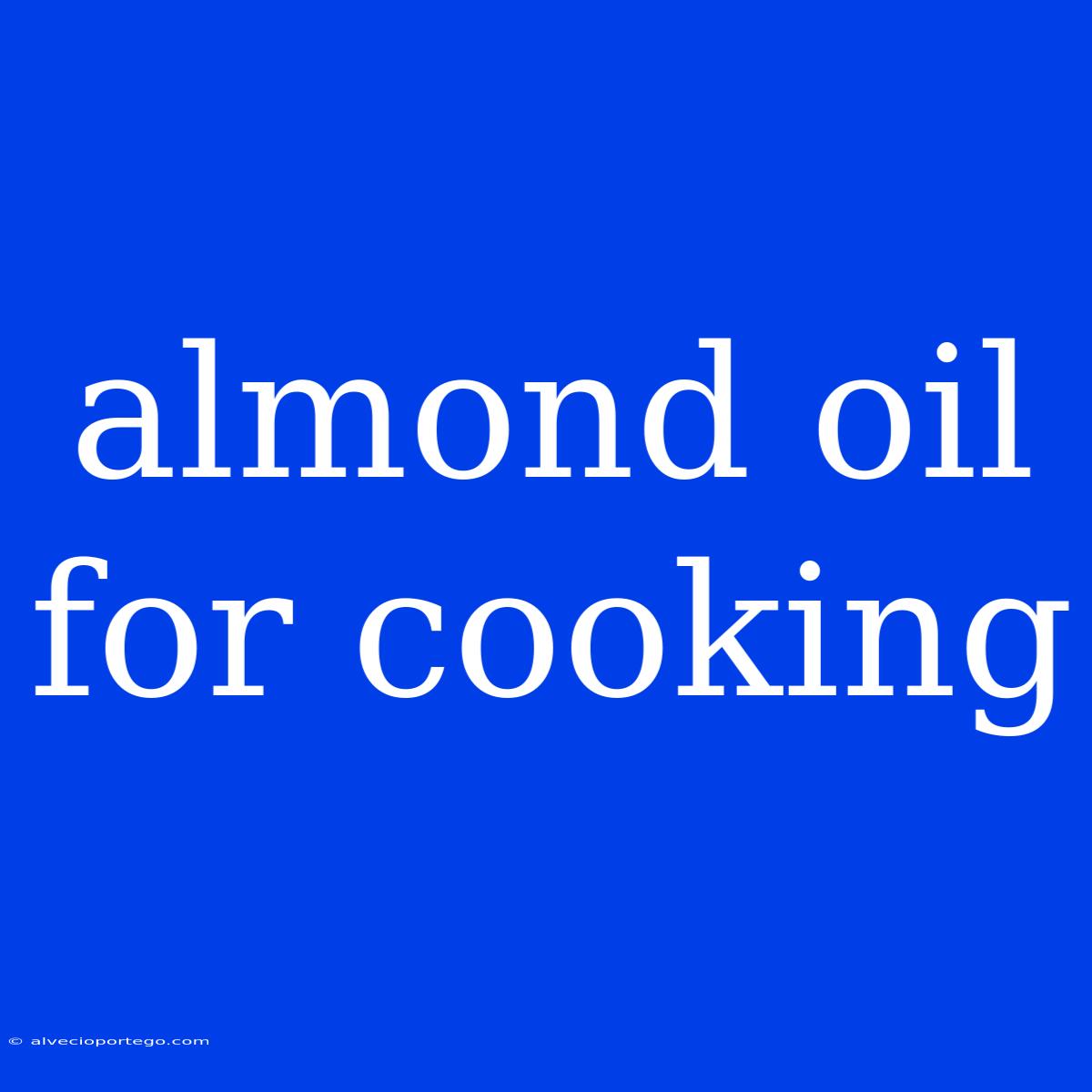Almond Oil: A Delicious and Healthy Choice for Cooking
Almond oil, extracted from pressed almonds, has gained popularity as a versatile and flavorful cooking oil. Its nutty aroma and delicate flavor enhance a wide range of dishes, while its nutritional profile offers potential health benefits. Here's a closer look at almond oil and its advantages for cooking:
Flavor and Aroma
- Mild, Nutty Flavor: Almond oil imparts a subtle, nutty flavor to dishes, adding a touch of richness without overpowering other ingredients.
- Delicate Aroma: Its aroma is pleasant and complements both savory and sweet dishes.
Nutritional Profile
- High in Monounsaturated Fats: Almond oil is rich in monounsaturated fats, particularly oleic acid, which is known for its heart-healthy benefits.
- Vitamin E: This oil is a good source of vitamin E, an antioxidant that protects cells from damage.
- Low in Saturated Fat: Almond oil contains a low amount of saturated fat, making it a healthier choice compared to some other oils.
Cooking Benefits
- High Smoke Point: Almond oil has a high smoke point of around 420°F (215°C), making it suitable for high-heat cooking methods such as frying, searing, and roasting.
- Stable at High Temperatures: Its stability at high temperatures prevents the breakdown of fats and the formation of harmful compounds.
- Flavor Infused: Almond oil's nutty flavor adds a delicious touch to dishes, making it ideal for sautéing vegetables, pan-frying fish, or roasting chicken.
How to Use Almond Oil for Cooking
- Sautéing Vegetables: Almond oil's delicate flavor complements vegetables, enhancing their natural sweetness.
- Pan-Frying Protein: Its high smoke point makes it perfect for pan-frying fish, chicken, or tofu.
- Roasting: Use almond oil to roast vegetables, potatoes, or chicken for a nutty flavor and crispy texture.
- Salad Dressings: Almond oil's nutty flavor adds depth to salad dressings.
Considerations
- Cost: Almond oil can be more expensive than other cooking oils.
- Allergy: Those with nut allergies should avoid almond oil.
- Storage: Store almond oil in a cool, dark place to preserve its freshness.
In Conclusion, almond oil is a healthy and delicious choice for cooking, offering a unique flavor profile and potential health benefits. Its high smoke point and stability at high temperatures make it versatile for a variety of cooking methods.

